We asked Ohio astronomy experts what they're doing for the eclipse. Here's what they said
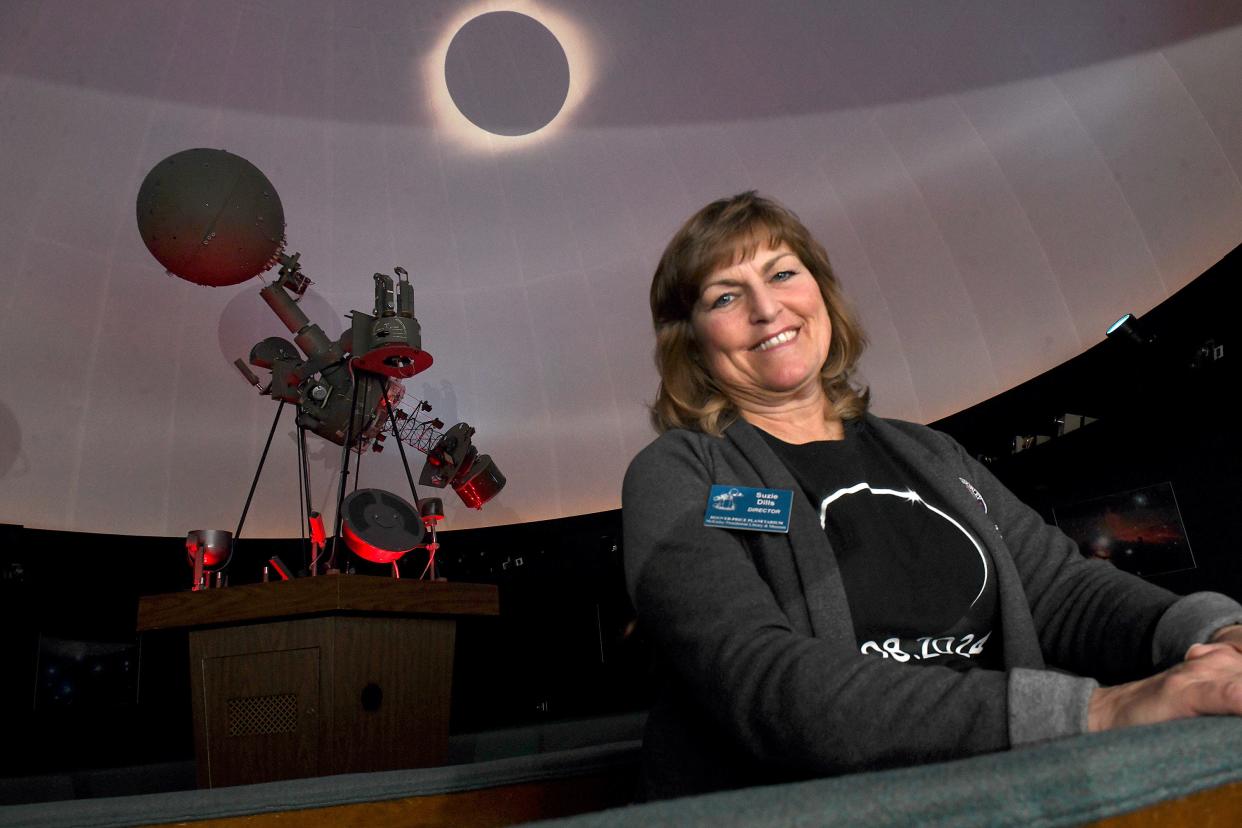
Suzie Dills has waited for years to see a total solar eclipse.
This year, her wish is coming true.
Dills is an astronomer and director of the Hoover Price Planetarium in Canton. She viewed a partial eclipse in 2017, but not a total one.
For the first time in over 200 years, on April 8, a total solar eclipse will be visible in Ohio.
"Oh my gosh, I'm so excited," Dills said. "I've been talking about this since 2017."
The total eclipse may be thrilling for the general public — and the hotels, restaurants and businesses that will reap some financial benefits — but for astronomers and those who keep their eyes on the sky, it's even more stimulating.
The Repository asked astronomers throughout Ohio what their plans are for viewing the upcoming eclipse. Their plans range from watching from a campsite to traveling out of state to attending an eclipse gathering so they can help others enjoy the view.
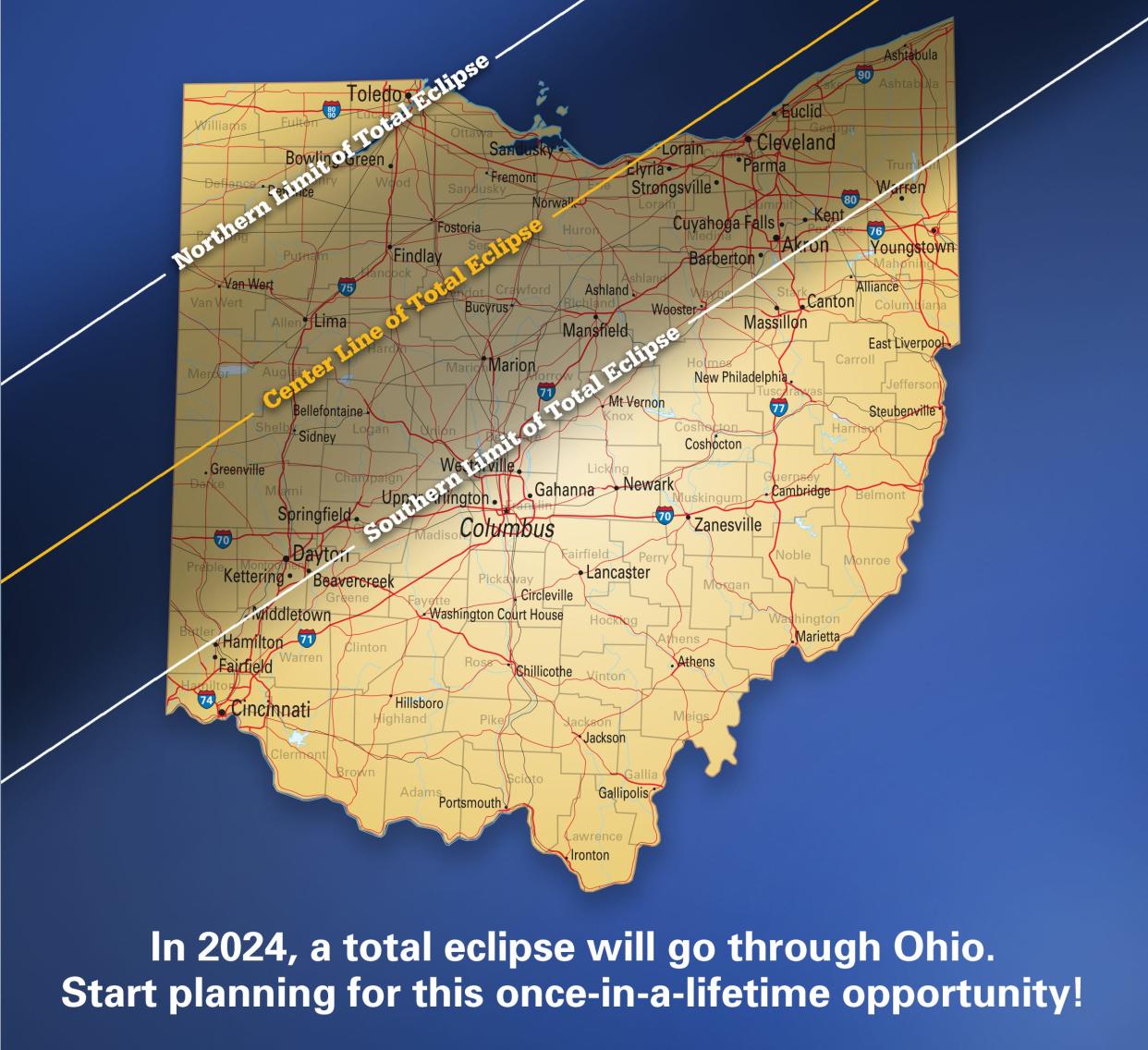
Suzie Dills, Hoover Price Planetarium director
Dills commutes to Canton during the week from her house in Avon Lake, but on the day of the eclipse, she will be staying home.
"I'm so fortunate because Avon Lake is on center line," she said. "We'll have one of the longest points of totality duration in Ohio."
The city is planning a large ticketed event at the high school Memorial Stadium. Dills said she will be on hand to engage with the community and educate about the eclipse.
"What a lot of us get really excited about is just having that opportunity to be with the public and educating, getting them excited about science, inspiring kids to want to be involved in science," she said.
Wayne Schlingman, director of Arne Slettebak Planetarium at Ohio State University
Wayne Schlingman, director of the Arne Slettebak Planetarium at Ohio State University, is going to be especially busy leading up to the total solar eclipse. That's one of the reasons he'll be traveling to Texas to see the eclipse.
"I'll be working basically seven days a week for the next month," he said. "That is my chance to get a bit of a breather in there but also just be someplace warmer."
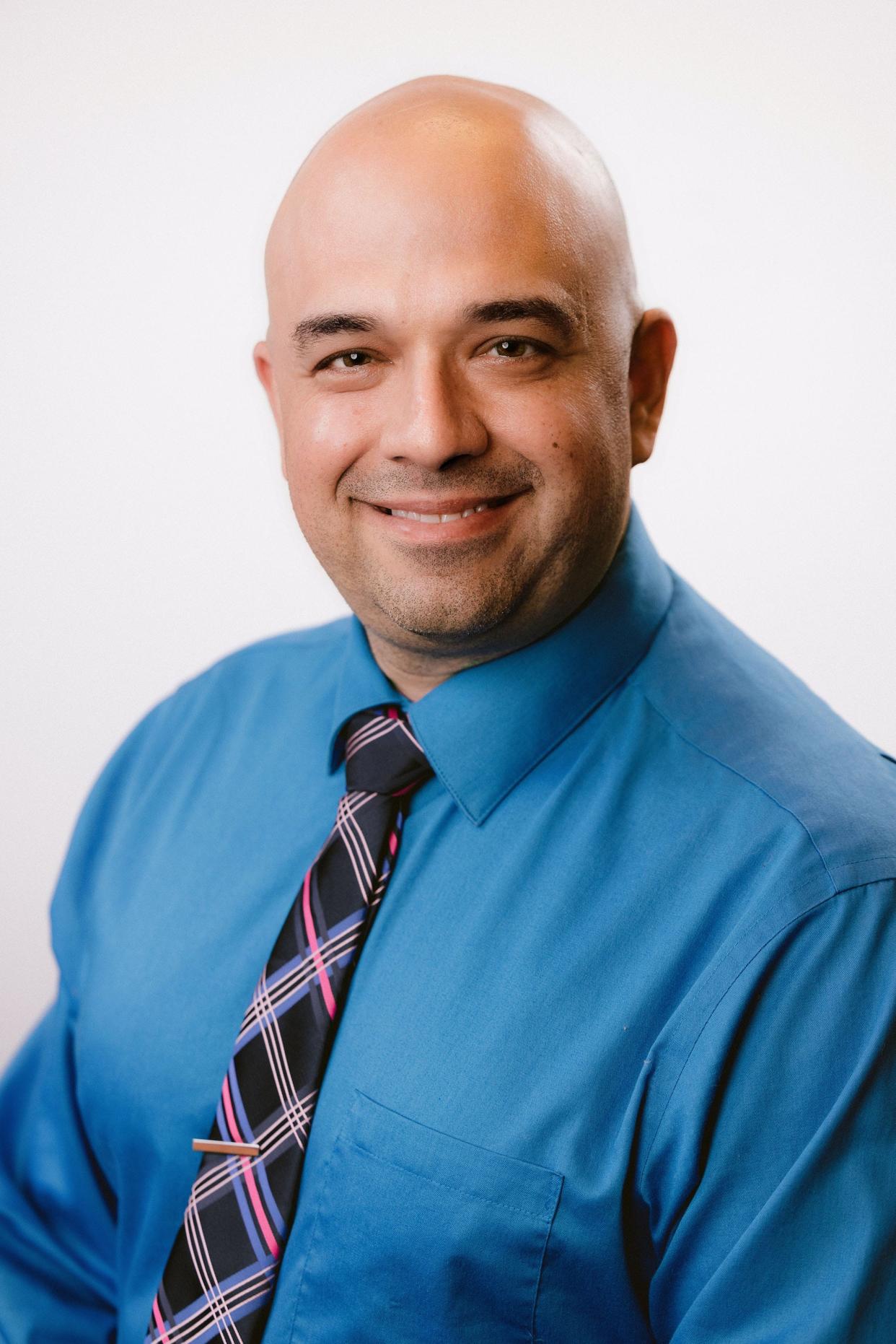
Schlingman plans to meet his parents, who live in Colorado. They will be camping near the center line of totality with plans to view the eclipse from the campsite to avoid heavy traffic.
"We're just going to park and that's it," Schlingman said. "I told my parents, 'If we're not going to walk there, we're probably not going to move.'"
Schlingman traveled to Wyoming to view the 2017 solar eclipse. He said even as an educator who had taught people what to expect, he was still blown away.
"I was not prepared," he said. "There's no real way to describe what it was like. There's lots of pictures, but the rest of it is just overwhelming. It's amazing."
Nick Anderson, senior astronomer at the Cleveland Museum of Natural History
Nick Anderson, senior astronomer at the Cleveland Museum of Natural History, saw the 2017 total solar eclipse from Kentucky. This time around, he's looking forward to sharing the experience.
"I know what's going to happen that day, and boy, you don't want to miss it. But also for a lot of the people, including my friends, family, colleagues, this is going to be their first opportunity to see this," he said. "[I'm excited to] see the joy on everybody's faces when they get a chance to see."
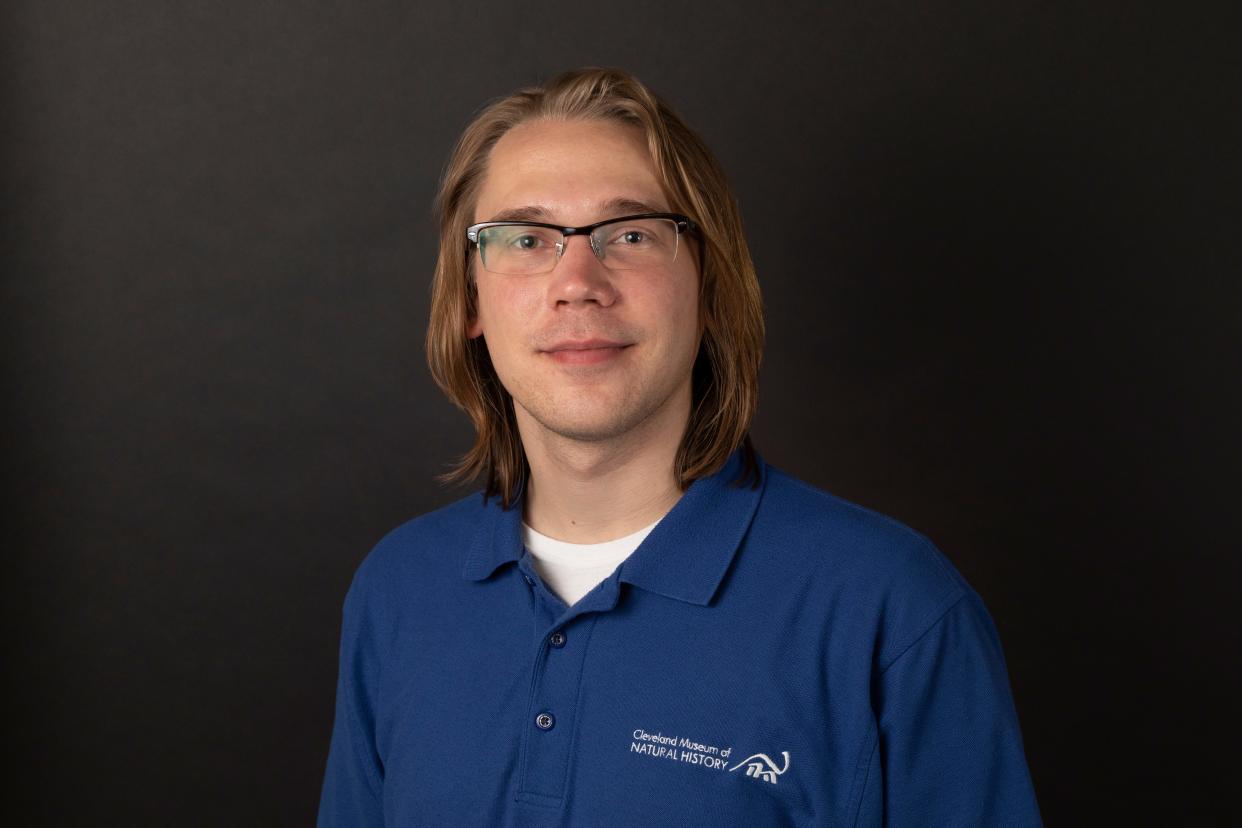
Anderson will be viewing the April eclipse from University Circle's Total on the Oval watch party in Cleveland. He's part of the astronomy team that will be giving a series of presentations and leading the countdown to totality.
His advice is to make the most of the once-in-a-lifetime experience.
"Enjoy every second of it," he said. "Don't get bogged down worrying about all the cameras and equipment, really just soak it in."
Katy Downing, planetarium and program coordinator at Lake Erie Nature & Science Center
Katy Downing, planetarium and program coordinator at Lake Erie Nature & Science Center in Bay Village, traveled to Nashville, Tennessee, to see the 2017 total solar eclipse, but this time she will be in her backyard.
"I saw one eclipse and that's not enough, I want to see more," she said. "Eclipses happen about every 18 months on the Earth, but most of them happen over water. So it's just a very truly unique opportunity to happen right here."
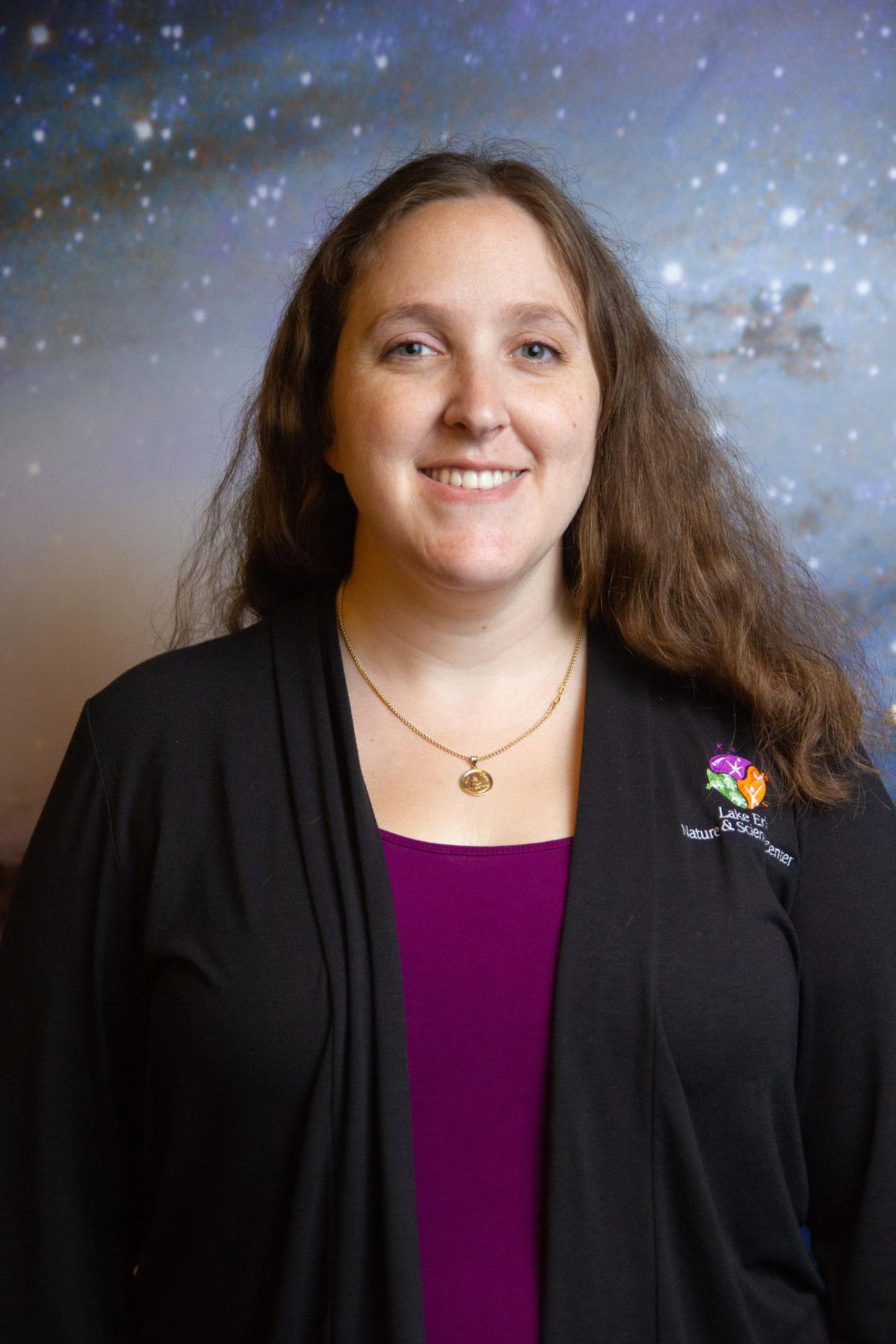
For this eclipse, Downing will be at the Lake Erie Nature & Science Center in Bay Village to help lead activities and usher people outside for eclipse viewing. Leading up to the day of the eclipse, the center is having educational planetarium shows on select Saturdays.
Downing said the experience seeing a total eclipse is truly unique.
"It was one of the coolest things ever," she said of her experience viewing the 2017 eclipse. "It is a truly magical moment."
Parker Lynch, planetarium manager at the Boonshoft Museum of Discovery
Parker Lynch, planetarium manager at the Boonshoft Museum of Discovery in Dayton, said he will be taking part in a fundraiser event at SunWatch, a Native American historical site in Dayton.
"I plan on doing presentations before the eclipse, talking about what an eclipse is, why do they happen, how often do they happen," he said. "We'll have solar telescopes and also pinhole eclipse viewers and solar binoculars, so a number of different ways to view the eclipse."
Tickets to the event are $500 and proceeds will go toward supporting the historical site.
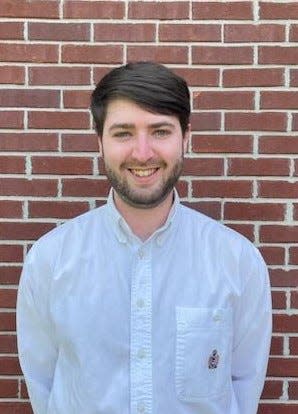
This will be his first time seeing a total solar eclipse. His only concern is the weather.
"I'm 50% excited, 50% nervous," Lynch said. "I'm super excited to see it. Even if it is cloudy, there's still going to be lots of really cool things going on that we'll be able to observe."
Karen Bjorkman, professor of astronomy at the University of Toledo
Karen Bjorkman, professor of astronomy at the University of Toledo, plans to stay in Ohio for the eclipse, chasing clear skies with her husband.
"We're going to get to someplace within the line of totality, probably as close to the center line as we can get," she said. "We'll probably go over around Norwalk or Cleveland. Of course, we'll have to watch the weather forecast and see what happens there, that's one of the tricks of being able to see eclipses."
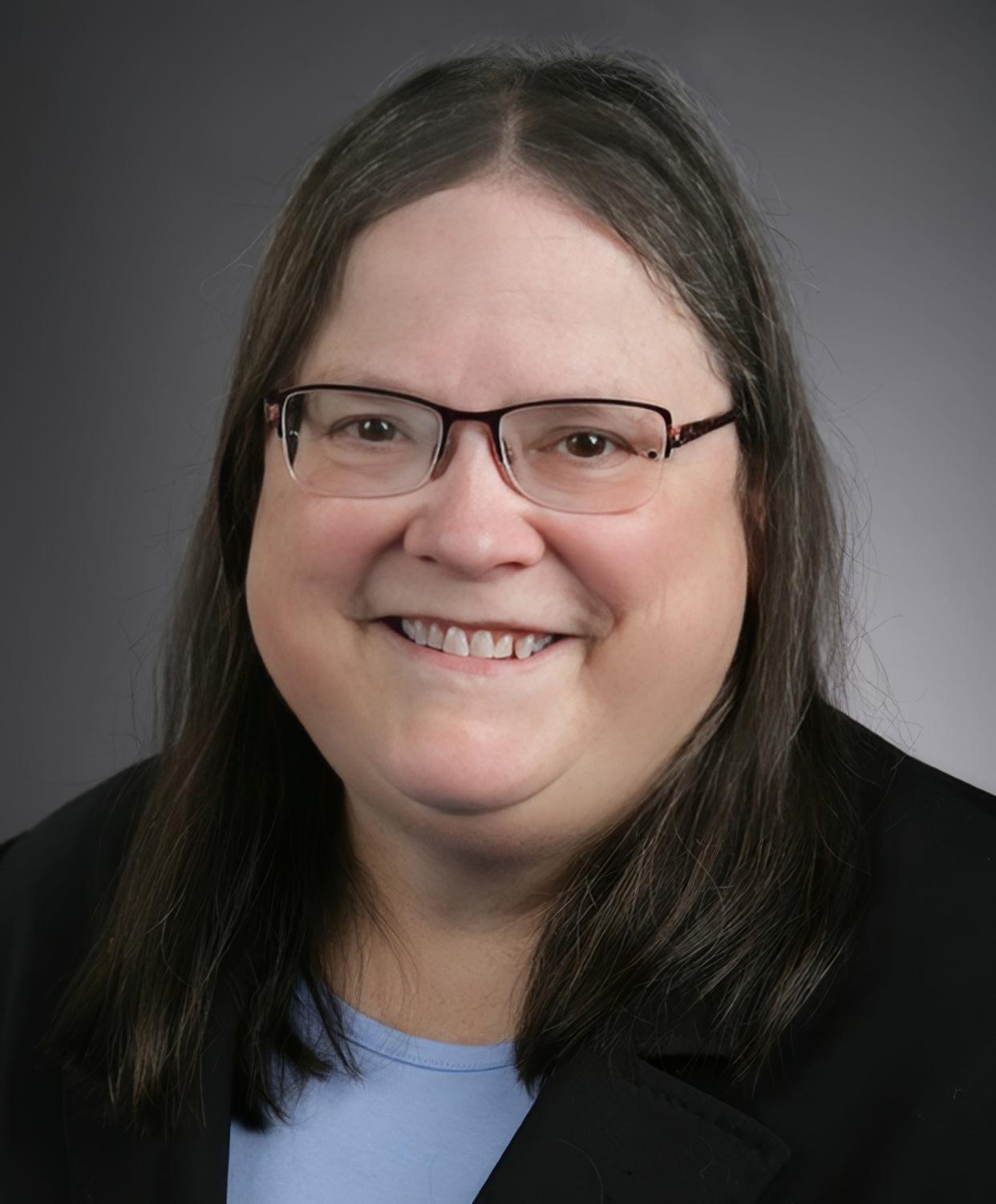
Bjorkman has seen two total solar eclipses, including the 2017 eclipse which she viewed from Wyoming.
"The sky was perfectly clear, it was just a beautiful sight," she said.
Her advice to Ohio eclipse viewers is to be flexible on the day of the eclipse.
"You want a fairly clear horizon if possible," Bjorkman said. "If you can be like in a clear field or someplace that you have a pretty good view of the sky, that's the most important thing."
Robin Gill, astronomy education specialist at The Wilderness Center
Robin Gill, astronomy education specialist at The Wilderness Center in Sugar Creek Township, is hoping for favorable weather as she plans to view the eclipse from Ohio.
"We're really looking forward to this," she said. "Typically in Ohio, early April can be really cloudy, so we're just hoping for clear skies."
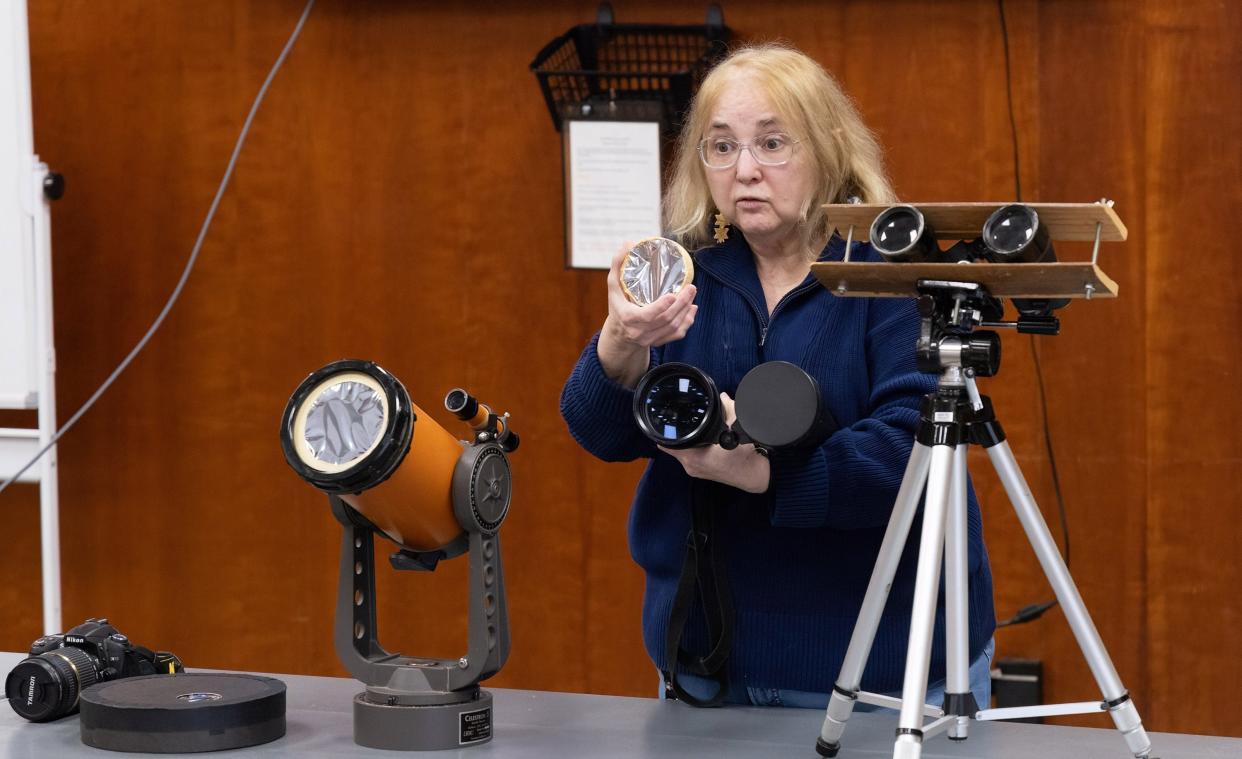
Gill and her husband plan to view the eclipse from her brother's yard in Norwalk, an area on the center line.
She has seen partial solar eclipses before surrounded by large crowds, but this will be her first time experiencing totality.
"It's nice to be with a lot of people sometimes because you just feel that excitement in the air," she said. "We've done that, so having this be a little bit quieter for us, we're looking forward to that."
Gill is teaching programs on eclipse safety at The Wilderness Center in Wilmot to prepare people for the April 8 event.
Don Stevens, Perkins Observatory director
Don Stevens, director of the Perkins Observatory at Ohio Wesleyan University in Delaware, hasn't made his final plans for the eclipse yet.
Instead, he'll be camping somewhere in the southwestern U.S. and watching the weather.
"The night before, I'll camp or stay someplace off the eclipse path where I can watch the weather and make the decision last minute what part of the path to head to," Stevens said. "I'll probably be in northern New Mexico, the panhandle of Texas or Oklahoma, that region."
Stevens has chased a few total solar eclipses. The only one he saw completely unobstructed by clouds was in 2017 from Wyoming. He said the experience was life changing and encouraged people to enjoy the view in April.
"If there's any way possible to see this, do it," he said.
Reach Grace at 330-580-8364 or gspringer@gannett.com. Follow her on X @GraceSpringer16.
This article originally appeared on The Repository: How the total solar eclipse will be viewed by Ohio astronomers
